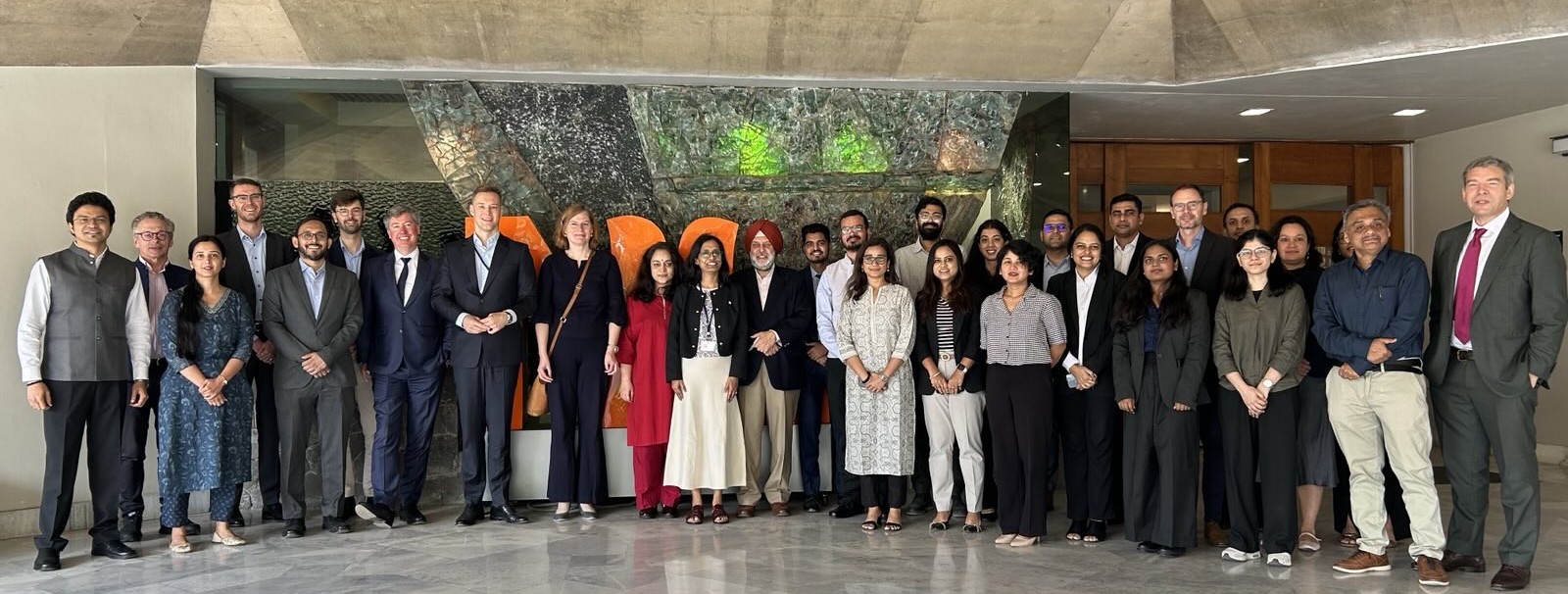A Clingendael Roundtable Discussion Debrief

As the world navigates rising geopolitical tensions, climate imperatives, and supply chain disruptions, securing access to clean energy and critical raw materials (CRMs) has emerged as a top strategic priority. For India and the European Union (EU), this moment offers a compelling opportunity to shape a resilient and inclusive energy future through deeper cooperation, shared innovation, and policy alignment.
A Common Strategic Imperative:
The global demand for CRMs is accelerating due to the rapid push toward decarbonization, digitalization, and advanced manufacturing. However, this shift has exposed vulnerabilities, especially overdependence on a handful of suppliers. China’s dominance in clean-tech manufacturing and rare earth processing has raised alarms over market distortion and constrained access. Both India and the EU are seeking to reduce these dependencies through domestic initiatives and strategic partnerships.
The EU’s Approach: Stability Through Diversification
The EU has taken significant steps to secure its CRM and energy needs through legislative and investment-driven tools. The Critical Raw Materials Act (CRMA), enacted in 2024, sets ambitious benchmarks: 10% of CRM extraction, 40% of processing, and 15% of recycling should occur within the EU by 2030. These efforts are supported by over €10 billion in public investment, aiming to attract up to €100 billion in total funding with private sector involvement.
Rather than pursuing full autonomy, the EU is focused on achieving strategic stability, meaning that the EU would manage interdependence through trusted international partnerships. Complementary legislation like the Net-Zero Industry Act (NZIA) supports clean-tech manufacturing within the EU, further reinforcing supply chain security.
The EU also leverages data and forecasting tools such as the Raw Materials Information System (RMIS) and supports 47 strategic CRM projects across 13 member states. These efforts are designed to strengthen CRM availability for sectors like energy, defence, and semiconductors.
India’s Priorities: Balancing Affordability and Sustainability
India, with its vast population and developmental needs, approaches energy security with a dual focus on affordability and sustainability. It is scaling renewable energy while ensuring access to reliable, low-cost power. The National Critical Minerals Mission, launched in 2025, outlines a robust agenda: completing 1,200 exploration projects, recovering 400 kilo-tonnes of recycled materials, and promoting 1,000 patents by 2031. The government has committed $1.9 billion USD of funding, with an expected $2.1 billion USD in public sector investment to accomplish their goals.
To reduce import dependence, India is building strategic partnerships across the Global North and South. Through frameworks like the Minerals Security Partnership (MSP), QUAD, and IPEF, India is working with the US, EU, Japan, and Australia, while also strengthening ties with resource-rich nations such as Brazil, Chile, South Africa, Namibia, Gulf Nations and the DRC.
Synergies and Opportunities for Joint Action:
India and the EU share multiple challenges, but also complementary strengths. The EU brings technological expertise and capital, while India offers scale, innovation, and cost-effectiveness. This alignment creates fertile ground for joint ventures across the CRM value chain, from mining and processing to battery production and recycling.
Frugal innovation could help in developing practical and locally adapted solutions that are both affordable and scalable. This can support shared sustainability goals while enhancing resource efficiency in both regions.
Further, aligning regulatory standards and promoting policy coordination through platforms like the India–EU Trade and Technology Council and the European Raw Materials Alliance can streamline investment, foster innovation, and improve trade flows.
The Global Dimension and the Way Forward:
As the global race for energy transition materials intensifies, multilateral cooperation will be essential. India and the EU can jointly invest in CRM projects across Africa and Latin America, leveraging platforms such as the EU Global Gateway, G20 Working Groups, and the International Energy Agency’s Critical Minerals Working Group.
Sustainability must remain at the core of all partnerships. Ethical sourcing, environmental responsibility, and ESG compliance are essential not just for public trust but also for attracting long-term investment.
India and the EU, by aligning their priorities and leveraging their unique strengths, can drive a global shift toward a more secure, equitable, and sustainable energy future.
This publication is based on a roundtable discussion hosted by the Clingendael Institute, the Institute of Peace and Conflict Studies (IPCS) and the Embassy of the Kingdom of the Netherlands in New Delhi on March 17, 2025. To read the complete roundtable debrief, follow the link here.
See below for our coverage on similar topics:
- Can Europe and India deepen ties through critical raw materials cooperation?
- The Global Scramble to Secure Critical Minerals: Geopolitical, Ecological and Planetary Risks
- Shaping the Future: Energy Transition in the Defence Sector



